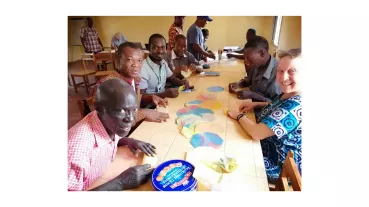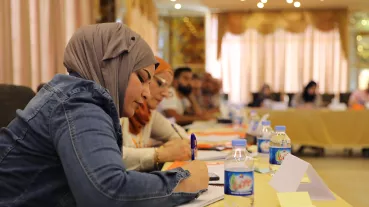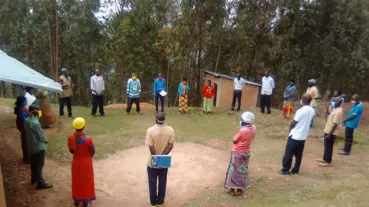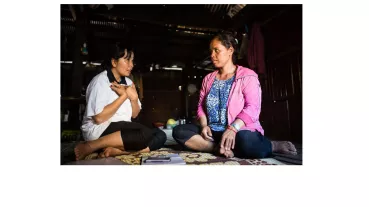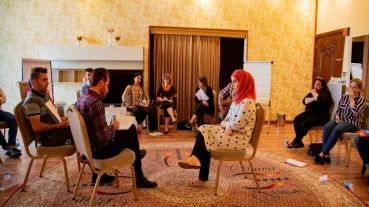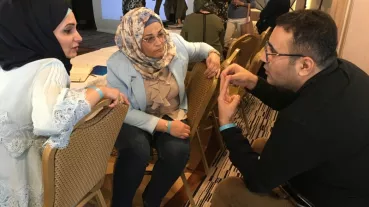Partnership for Improvement and Prevention in Mental Health (PIP-MH)
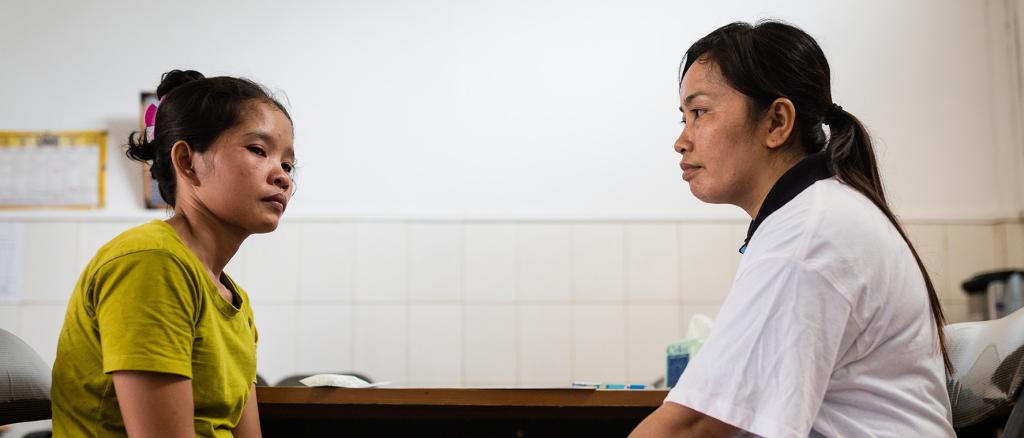
Further Partner organisations in partner country: Center for Child and Adolescent Mental Health, Humanity & Inclusion, Douleurs Sans Frontières, University of Washington und Saint Paul Institute.
Situation:
In Cambodia, 27.4% of the population suffers from anxiety, 16.7% from depression and 7.6% from PTSD. Such a high prevalence is due to the country’s history of violence, the challenges arising from an accelerated growth and rapid socioeconomic changes and, more recently, the COVID-19 pandemic. Still, mental health is widely neglected as its budget accounts for less than 1% of the total annual health budget.
Objectives:
The availability, accessibility and quality of mental health services in Chamkar Leu and Oreang Ov operational districts and the general prevention on Non-Communicable Diseases, are improved, considering the differentiated impact on children, adolescents, men and women.
- 60% of women and men treated for depression and/or General Anxiety Disorders report reduced symptoms and improve their functioning and wellbeing
- Comprehensive/integrated mental health services for children and adolescents are available in 2 referral hospitals and 9 health centres (cumulative)
- 40% of new cases (sex disaggregated) are self-referred to mental health services
- Introduction and implementation of a collaborative care model and integration of child and adolescent mental health into mental health services;
- Implementing health technology initiatives, including a patient tracking system,
- Strengthening the capacity of partners, especially their administrative systems and management skills;
- Training, coaching and counselling of medical and non-medical staff in mental health diagnosis, treatment, referral and counselling;
- Development and dissemination of knowledge management products related to the project;
- Strengthening the capacity of community resource persons, promoting public education and awareness on non-communicable disease prevention, mental health, disability, destigmatisation, domestic violence and early childhood development.
The project builds on the results and progresses achieved over the past 5 years and will further reinforce the technical capacity, responsibility, and leadership of the partner organisations’ personnel. Training activities will focus on key Collaborative Care Model (CCM) elements which will be tailored to fit the Cambodian context: trained doctors, nurses and mental health workers will provide culturally appropriate services taking into consideration prevalent health beliefs in Cambodia.
The project will promote the information exchange between primary health care providers, LC partners' staff and academic institutions, and will help establish routine monitoring of patient symptoms, treatment adherence and satisfaction. As the skills and the practice of health staff increase, the support from LC will progressively be reduced. The project will also develop evidence-based information for practical application in policy advocacy to assist the process of clinical improvement, health systems development and information sharing mechanisms.
The project will ensure that the provision of mental health is integrated in the Minimum Package of Activities (MPA) at Health Centre level as well as in the Complementary Package of Activities (CPA) at Referral Hospital level and mainstreamed into relevant services. In this sense, patients' care with clinical benefits (evidence‐based behavioural treatment and psychosocial interventions) will be at no greater cost than usual care.
The project aims to develop a Cambodian integrated Collaborative Care Model (CCM) focusing on primary prevention and community mental health and support government capacity to treat mental health at primary care level. This CCM covers the integration of mental health services into the public health system, including child and adolescent mental health.
As part of the CCM, the project focuses on the development of a strategy of stakeholders collaboration, organising multidisciplinary approaches to team-based treatment. The model offers one approach to integration in which the clinicians and non-clinicians work together to provide care and monitor patients’ progress. In relation to this, the project has recruited two Patient Care Facilitators (PCFs) who play an important role in the care coordination process and the care plan at the Chamkar Leu Referral Hospital. They are also tasked with the screening for depression of selected patients, starting with patients suffering from diabetes, so that they can receive integrated services taking into account their mental health situation.
A quality improvement sub-team (QI) was also set up at the Chamkar Leu Referral Hospital to oversee the implementation of the CCM. The goal is to improve access to quality mental health care for patients with comorbidities (Non-Communicable Diseases and mental health). Regular meetings of the QI sub-team members (20 persons presenting a wide range of skills) are organised to appraise the efficiency and effectiveness of the CCM set up process, determine priorities for interventions, review progresses etc.
Moreover, the project aims to provide quality services tailored to the specific needs of children with mental health conditions, psychosocial disabilities and social vulnerabilities, and to achieve health and educational equity through early identification, counselling and evidence-based treatment. A Special attention is paid in improving the skills of health professionals and volunteers for child development (VCD) who provide dedicated mental health services for women and children. The project plans to educate women in preventing childhood mental illness and disabilities, accessing care services, and having a balanced diet, especially during pregnancy and early childhood.
You can find further information here.

